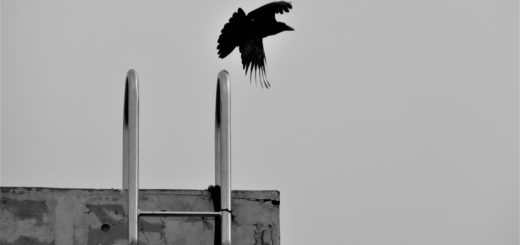The Tyrant As Caricature
Caricature: “exaggeration by means of often ludicrous distortion of parts or characteristics.” (Merriam-Webster)
What is a human being, as ordinarily witnessed? A creature that devotes too much of its brief life and limited energy to the acquisition of goods that would only have ultimate value to a being that was going to live forever.
And what is a tyrant? A human that devotes all of his brief life and limited energy to the acquisition of goods that would only have ultimate value to a being that was going to live forever.
In fact, the situation is even worse than this for these parodies of men, the tyrannical souls. For even the most ordinary (and non-tyrannical) human being, for all his weakness and susceptibility to foolish paths, nevertheless may achieve some minor approximation of the goal we all seek, namely immortality. He may bring children into this earthly realm who will continue his bloodline for generations, while (more importantly) remembering him fondly by name, for at least a generation or two. Or a few such men might build something, contribute to something, or die for something, in a manner that will win them even greater longevity, by way of a positive or generally valued legacy, even among future generations that do not know these individuals by name. (“Our forefathers,” “The Greatest Generation,” or what have you.)
But what of the tyrant? Not only will he — assuming he is very successful and extraordinarily lucky — finally die on a pile of suddenly worthless acquisitions (lands, riches, other men’s labor), but more importantly, since tangible assets are never the soul’s true aim, he will miss out on even the legitimate satisfactions that such accumulation can bring, as he lives the bulk of his “successful” years, and in particular his “golden years,” in constant anxiety and increasing paranoia about threats to his life and power. Furthermore, he will miss out even on the ordinary man’s hope of survival by personal reputation after departing. That is to say, if he is fortunate enough to escape death by hanging from a tree while his slaves laugh and sing around his dripping body, or by way of a sword rammed humiliatingly up his rear end — and quite a few of them do go out in such ignominious ways, of course — he will nevertheless quickly face an outcome even worse than these. For he will indeed be remembered, but only as a hated figure, a worthless and empty man, a worm unworthy of the basic dignity of a proper burial, let alone a flower on his grave.
His legacy will in this sense be the shortest of all men’s, and the narrowest in scope. His own heirs will likely wish they could erase his existence from theirs, and his longer term memory, rather than fading into eternity with honor, will linger on as a kind of memorial stench, a perpetual symbol of death itself, a fable of the nothingness.
No human being worthy of the name would choose such a ludicrous fate. And yet all those with power lust in their hearts, or a will to coercively determine the fates of their neighbors, are in fact choosing it. The tyrannical man is thus a caricature of the human condition, and essentially laughable in his outsized weakness, his exaggerated folly, and his stupidity in pursuing his immortality along the path most certain to ensure his permanent expulsion from life in all its forms. All the losses he causes others will be nothing compared to the loss to which he has subjected himself, in the end. All for the luxury of a bigger, more heavily-guarded death bed — and the never-ending certainty that many of his guards wish to murder him in his sleep.



